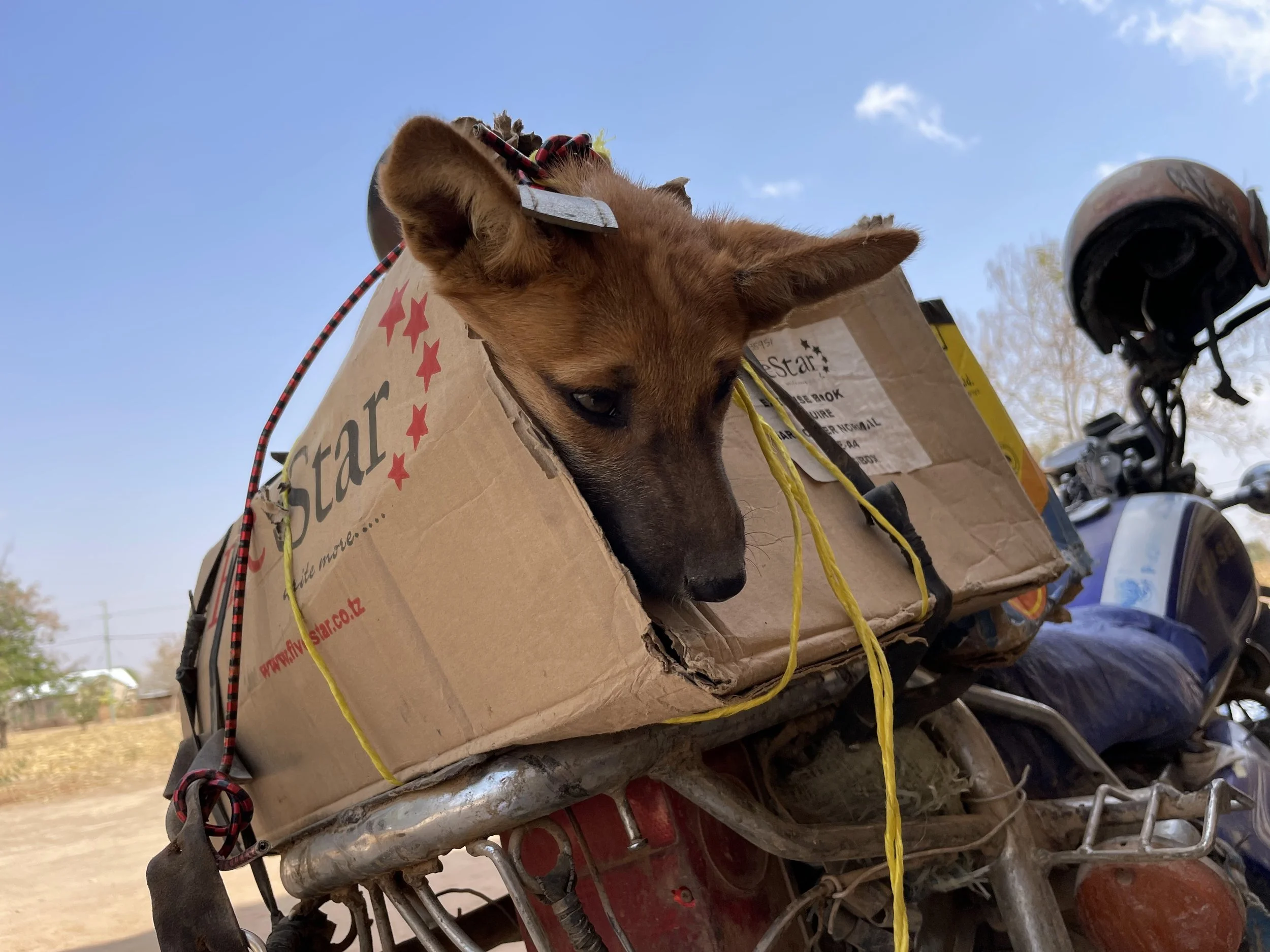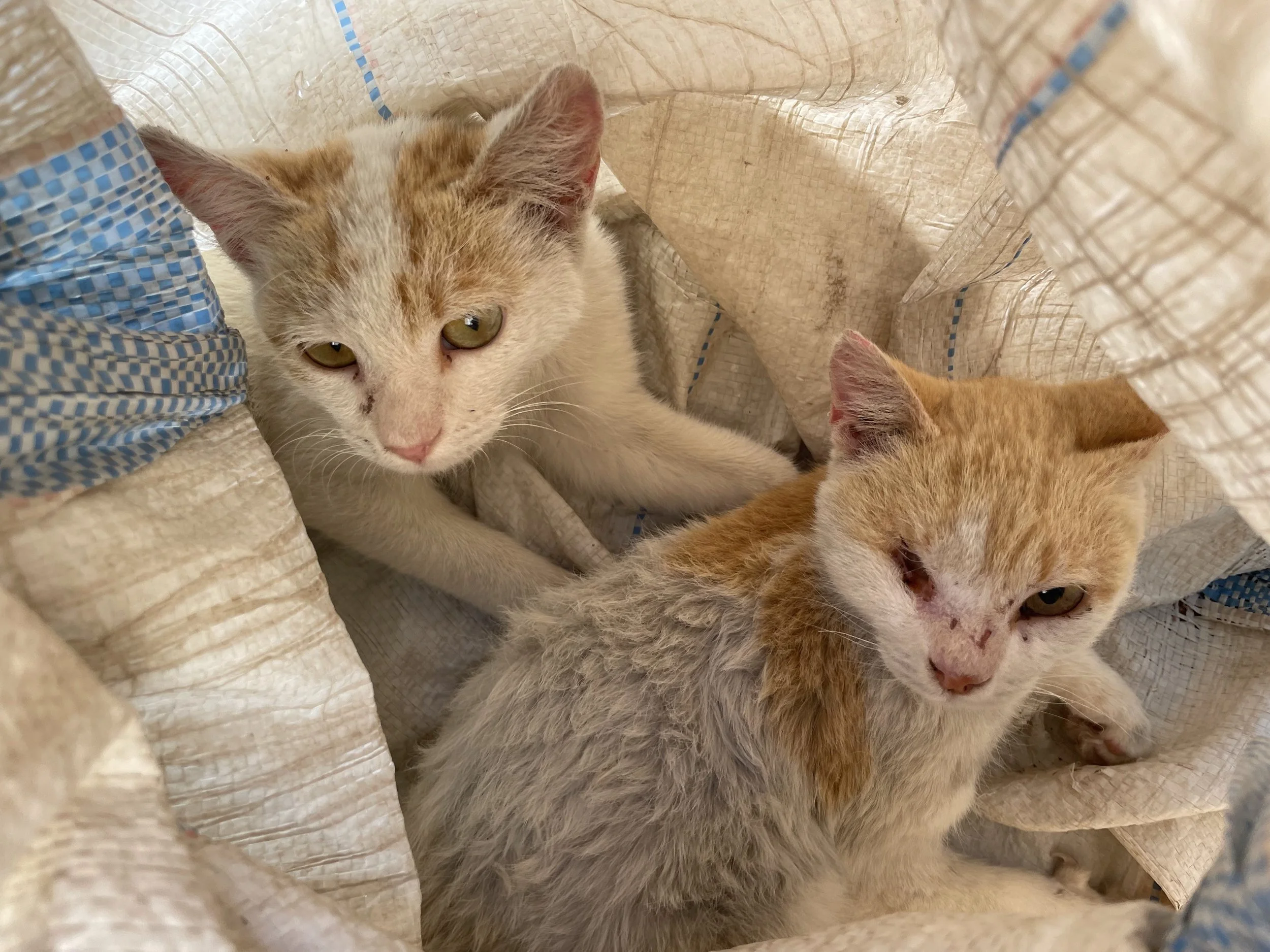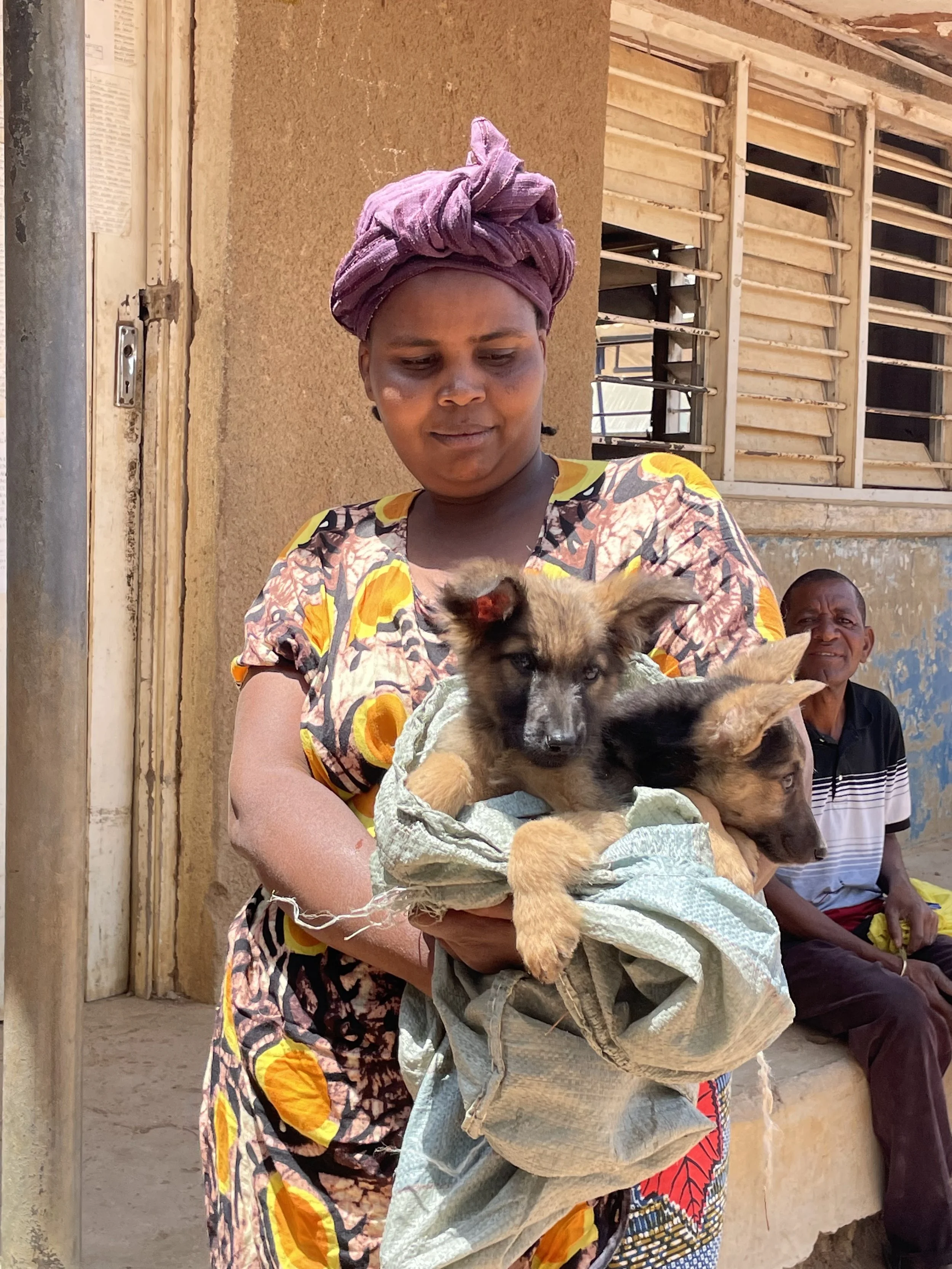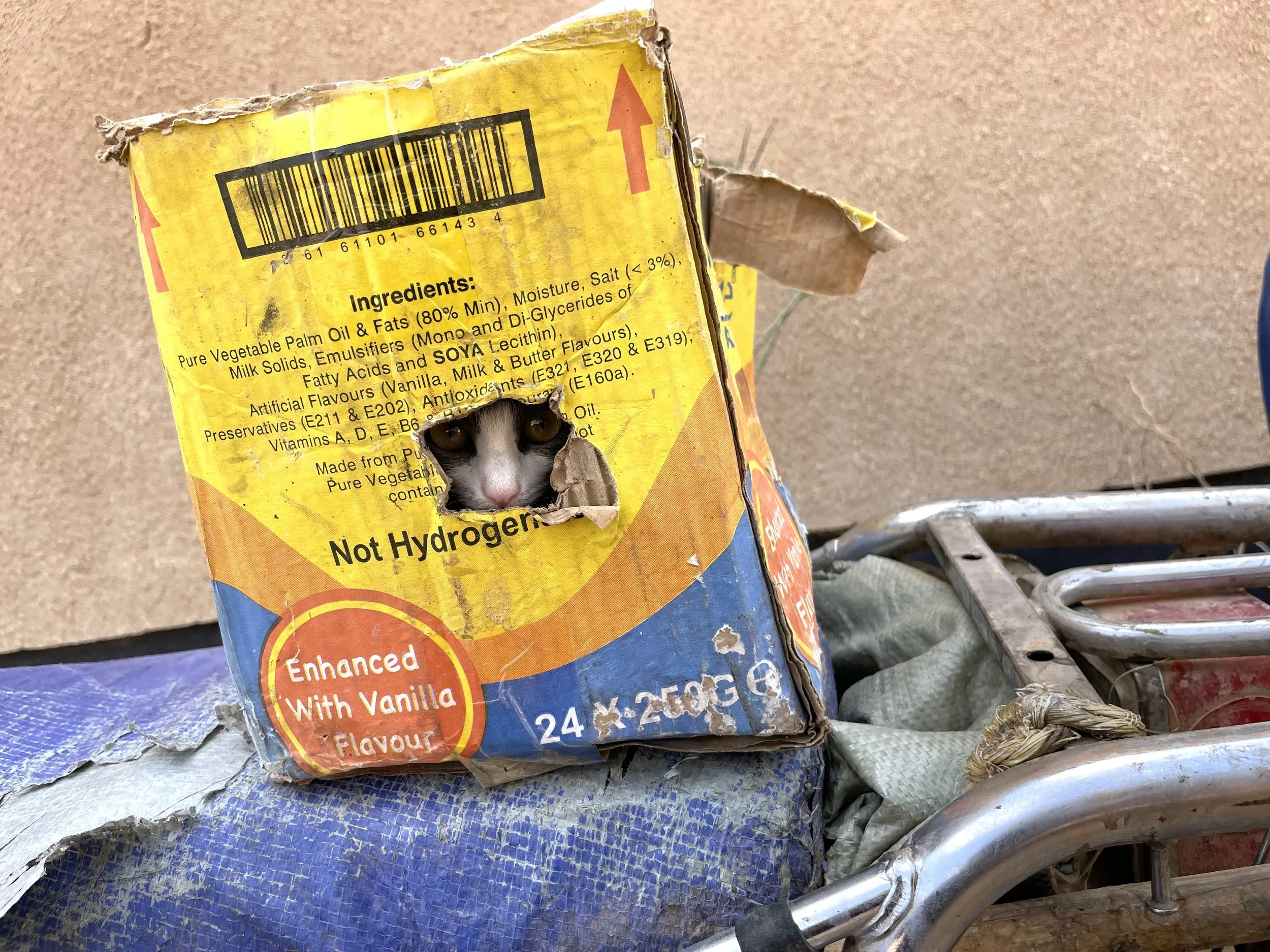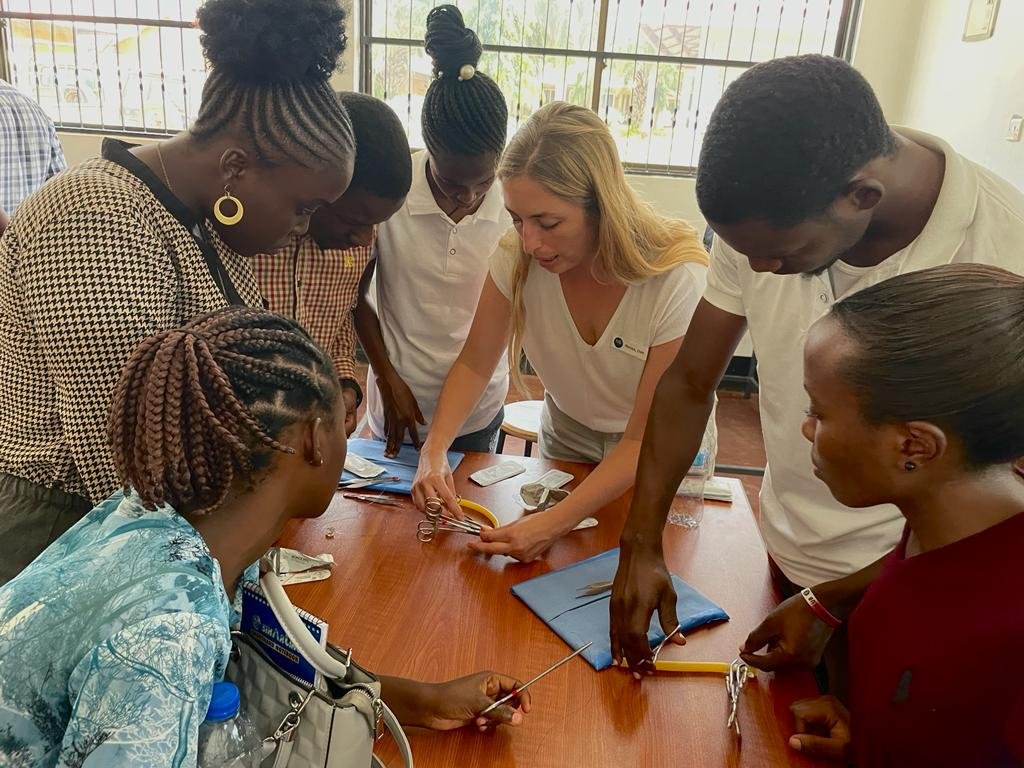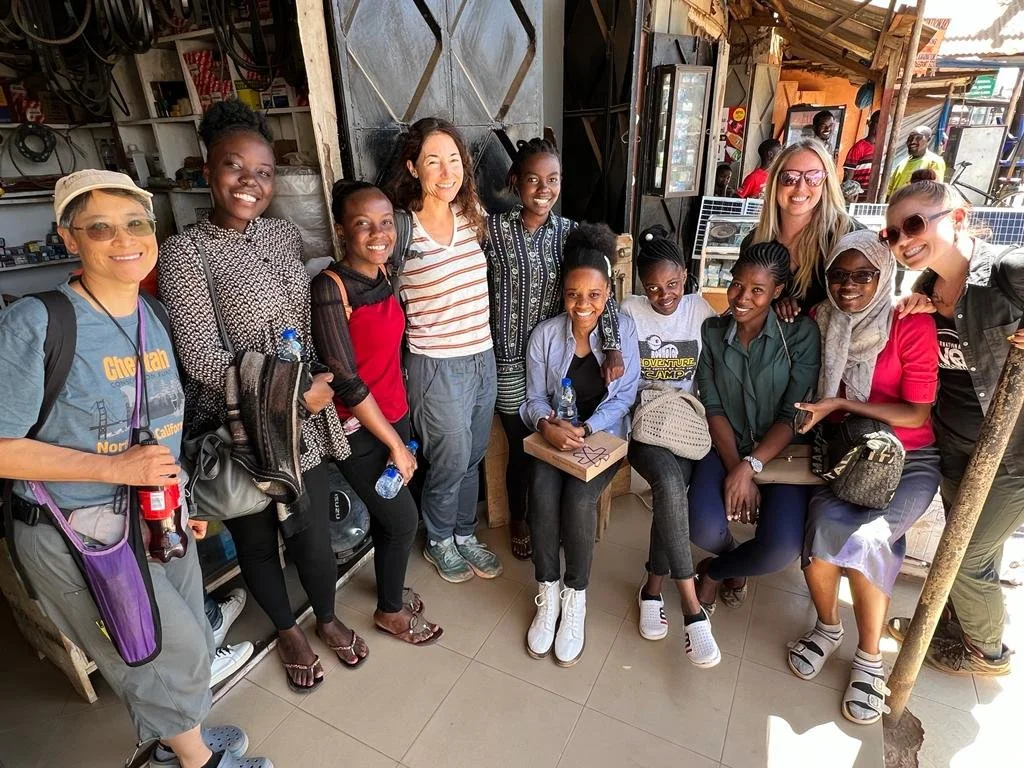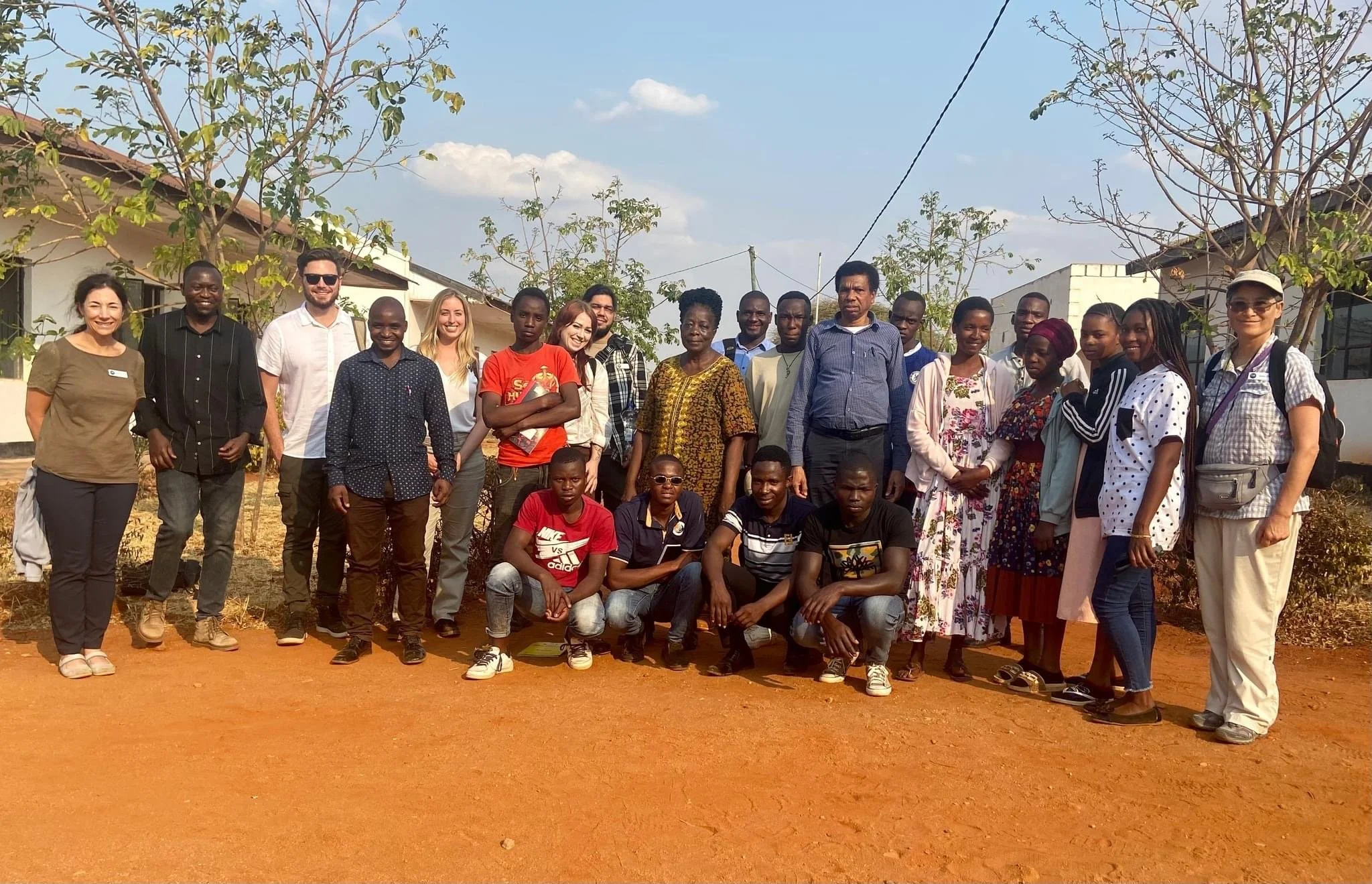
TANZANIA CAMPAIGN 2023
Doin’ it again for the animals & people of Dodoma!
The situation for dogs and cats in Dodoma, Tanzania is grim, and urgent help is needed.
Join our campaign today to deliver training to young veterinary professionals while providing direct care to animals in need.
Help us change the future for the dogs and cats of Tanzania
In Dodoma, Tanzania, the situation for dogs is dire and urgent help is needed. With not a single small animal veterinary clinic in the city, the area is rife with animal suffering. The estimated 13,000-26,000 dogs in the region are at high risk of contracting contagious diseases like rabies, and are often subjected to unethical mass culling.
What we did for the Dogs of Dodoma in 2022
In October 2022, IVO partnered with local organizations in Dodoma, Tanzania to train students at veterinary institutes and provide care for animals. Together, we worked to reduce rabies transmission, offering vaccinations and treatments for infectious and parasitic diseases.
During our pilot program, we:
Trained 39 local veterinary and para-veterinary students on dog health and welfare
Provided veterinary aid to nine marginalized communities
Protected 753 dogs and cats with vaccinations and anti-parasitic treatments
Conducted a spay/neuter training opportunity for 20 students, sterilizing 40 animals.
Donate to our 2023 program
We are a nonprofit organization on a mission to create a healthy global community free of animal suffering. We want to improve the lives of people and animals worldwide, and you can help us do it! Donate now to support our international conservation efforts and animal health programs! IVO has a long history of improving dog and other animal welfare; learn more about our decade of positive impact, and help us continue our work in Dodoma!
What your donation will do
With your support, IVO’s 2023 program will make a big impact in the lives of dogs in Dodoma.
-
Increase the capacity of 18+ Tanzanian veterinary students and 18+ para-veterinary students by providing training in topics relevant to dog welfare, preventative medicine (vaccination, etc.), One Health, Human population control (spay/neuter surgery), anesthesiology, etc.)
-
Provide high quality basic veterinary care to approximately 1,000 dogs and cats in underserved communities with an emphasis on preventative medicine that reduces disease transmission to people (including rabies) and wildlife.
-
Provide spay/neuter surgery for 36+ dogs while offering hands-on training for Tanzanian veterinary students as alternative methodology for humane population control.
-
Establish an inclusive team of founders that will advance the veterinary profession and companion animal welfare in a region that hasn’t been able to
Learn more about our Tanzania program partners
Animal Smile Africa is a Tanzanian NGO whose mission is to create community awareness with an emphasis for proper animal utilization and improved welfare for animals.
Sokoine University of Agriculture is a public university that has been offering courses in agriculture, veterinary science, animal science, wildlife management, and more since 1984. Sokoine will advertise the training opportunity among its 13,000+ students, oversee recruitment of participants, and provide space and time for students to participate in the classroom and clinical elements of the program.
Tanzania Animal Welfare Society (TAWESO) manages on a volunteer basis a variety of animal welfare activities in the Coast, Central, Southern, and Lake zones of Tanzania. TAWESO will oversee the clinical portion of the program. It will provide space within its Community Animal Health Centre in Kibaigwa for clinical training and will advertise the opportunity to dog owners in Kibaigwa.
Visele Livecrop Skills Training Centre was founded with the mission to train young people in agricultural and entrepreneurial skills in order to address the high level of unemployment and limited opportunities for higher education in the Dodoma region. The Centre will advertise the training opportunity among its students, oversee recruitment of participants, and, along with Sokoine University, provide space and time for students to participate in the classroom and clinical elements of the program.

